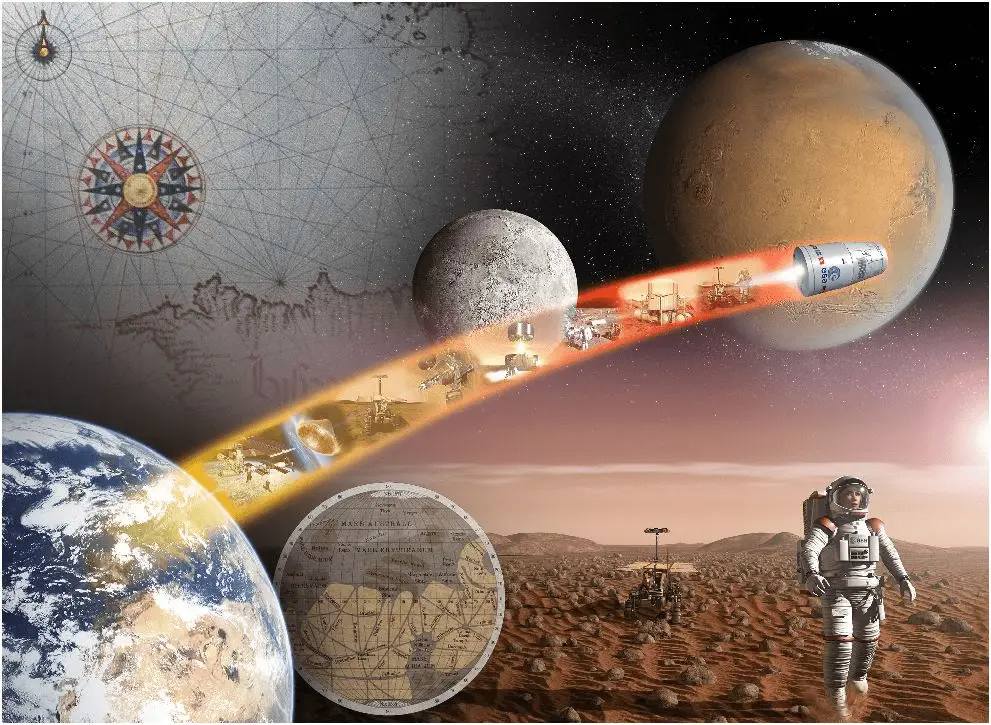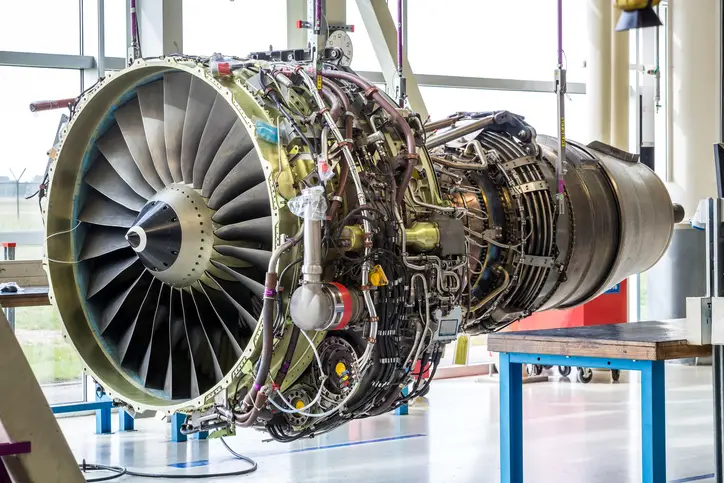Discover the Top 10 Majors That Will Catapult Your Career to Revolutionary Heights and Lead to Groundbreaking Innovation! Unleash Your Inner Innovator Today!
In today’s rapidly evolving business world, groundbreaking innovation has become crucial for addressing the complex challenges we face. Several fields are at the forefront of innovation, driving advancements that have the potential to transform society.
Among these, artificial intelligence (AI), biotechnology, and clean energy are prominent, promising realms of exploration. This article will delve into the top five majors most likely to lead to groundbreaking innovation within these fields.
We will explore potential breakthroughs and include inspiring quotes from innovators who are pushing the boundaries of knowledge.
Table of Contents
Assessing Majors for Groundbreaking Innovation Potential
Assessing the potential of majors to lead to groundbreaking innovation involves considering various factors such as the current state of the field, ongoing research and development, technological advancements, and societal needs.
While no assessment can be definitive, here is an analysis of the majors in terms of their potential for groundbreaking innovation:
#1. Computer Science and AI

Computer science and AI have revolutionized various industries, and their impact is expected to grow exponentially. Breakthroughs in this field can lead to advancements in machine learning, natural language processing, computer vision, and robotics.
Key areas of potential breakthroughs include:
- a. Explainable AI: Developing AI systems that provide transparent and interpretable decisions.
- b. Reinforcement Learning: Enabling AI to learn from trial and error, leading to more efficient decision-making.
- c. Quantum Computing: Applying quantum principles to enhance computation power, enabling AI to solve complex problems at an unprecedented scale.
Inspirational Quote:
“The development of full artificial intelligence could spell the end of the human race… It would take off on its own and redesign itself at an ever-increasing rate.” – Stephen Hawking, Theoretical Physicist

👍Pros:
- High Demand and Job Opportunities: Computer science and AI are rapidly growing fields with a high demand for skilled professionals. Choosing this major increases your chances of finding well-paying job opportunities in various industries, including technology, finance, healthcare, and more.
- Innovation and Problem-Solving: Computer science and AI majors are at the forefront of technological innovation. You will have the opportunity to work on cutting-edge projects and develop solutions to complex problems. This field allows you to apply critical thinking, creativity, and logical reasoning to solve real-world challenges.
- Versatility and Transferable Skills: A major in computer science and AI equips you with a wide range of transferable skills that can be applied in various domains. You will gain proficiency in programming languages, data analysis, algorithm design, and machine learning, which can be valuable in different industries and career paths.
- Lucrative Salary Potential: Due to the high demand for computer science and AI professionals, graduates often enjoy competitive salaries. The specialized skills and knowledge acquired during your studies can lead to well-compensated positions in the job market.
- Constant Learning and Growth: Computer science and AI are dynamic fields that constantly evolve. As a major in this field, you will have the opportunity to engage in lifelong learning and stay updated with the latest advancements. This field encourages continuous personal and professional growth.
👎Cons:
- Challenging and Demanding: Computer science and AI innovation programs can be rigorous and require a solid foundation in mathematics, logic, and problem-solving. The coursework can be challenging, demanding long hours of studying and practice. This may require a high level of dedication and persistence.
- Rapid Technological Changes: The field of computer science and AI is characterized by rapid advancements and ever-changing technologies. This means that what you learn during your studies may become outdated in a few years. Continuous learning and adaptation to new technologies are essential to stay relevant.
- Competitive Job Market: While there is a high demand for computer science and AI professionals, the job market can also be highly competitive. To stand out among other candidates, you may need to showcase additional skills, build a strong portfolio, or gain practical experience through internships or projects.
- Ethical Considerations: As a computer science and AI professional, you may be involved in developing and implementing technologies that have ethical implications. It is important to consider the potential societal impacts of AI and ensure ethical use and responsible development to avoid unintended consequences.
- Specialized Knowledge Required: Computer science and AI involve complex concepts and specialized knowledge that may require significant time and effort to understand and apply effectively. This can be daunting for some individuals who may find certain aspects of the field more challenging or less interesting.
#2. Biotechnology and Genetic Engineering

Biotechnology and genetic engineering have the potential to revolutionize medicine, agriculture, and environmental sustainability. Key areas of potential breakthroughs include:
- a. Gene Editing: Refining CRISPR-Cas9 technology to treat genetic diseases effectively.
- b. Synthetic Biology: Designing artificial biological systems to produce sustainable materials, fuels, and pharmaceuticals.
- c. Organ Regeneration: Creating functional human organs through tissue engineering and stem cell research.
Inspirational Quote:
“The human body is the most complex machine ever created. Decoding its mechanisms can unlock transformative solutions for countless diseases and challenges.” – Jennifer Doudna, Molecular Biologist and CRISPR Pioneer

👍Pros:
- Innovative and Revolutionary Field: Biotechnology and genetic engineering have the potential to revolutionize various industries such as healthcare, agriculture, and environmental conservation. As a major in this field, you can be at the forefront of groundbreaking discoveries and contribute to scientific advancements that can improve human lives.
- Diverse Career Opportunities: A major in biotechnology and genetic engineering opens up a wide range of career opportunities. You can work in research and development, pharmaceuticals, biotech companies, agriculture, forensic science, environmental science, and many other sectors.
- Solving Global Challenges: Biotechnology and genetic engineering offer solutions to critical global challenges. By studying and working in this field, you can contribute to developing sustainable agriculture practices, finding new treatments for diseases, improving food production, creating biofuels, and combating climate change.
- Intellectual Stimulation: Biotechnology and genetic engineering involve complex problem-solving and critical thinking. As a major in this field, you will engage in intellectually stimulating research, experimentation, and analysis. You will constantly be challenged to develop innovative solutions and stay updated with the latest scientific advancements.
- Potential for Personal Fulfillment: Pursuing a major in biotechnology and genetic engineering can provide a sense of personal fulfillment and purpose. Knowing that your work has the potential to save lives, improve the environment, or enhance the quality of life for individuals can be incredibly rewarding.
👎Cons:
- Ethical Concerns: Biotechnology and genetic engineering raise ethical dilemmas, especially when it comes to manipulating living organisms, genetically modifying humans, or altering the natural course of evolution. As a major in this field, you will need to grapple with these ethical considerations and make informed decisions.
- Public Perception and Controversies: Genetic engineering and biotechnology can be controversial topics, leading to public skepticism and concerns. You may face resistance from certain groups or encounter challenges in effectively communicating the benefits and risks associated with the field.
- Regulatory and Safety Concerns: The field of biotechnology and genetic engineering is subject to strict regulations to ensure safety and prevent any potential harm. As a major, you will need to navigate through complex regulations, comply with safety protocols, and work within ethical frameworks.
- Intense Competition: Biotechnology and genetic engineering are rapidly growing fields, attracting a significant number of talented individuals. This can lead to intense competition for jobs, research grants, and academic positions. Excelling in this field requires dedication, hard work, and continuous learning to stand out among your peers.
- Long Research and Development Cycles: Developing new biotechnological products or therapies often involves long and expensive research and development cycles. This can result in significant delays and uncertainties before the successful implementation of new technologies.
#3. Environmental Sciences and Clean Energy

The urgency to combat climate change has propelled clean energy and environmental sciences to the forefront of innovation. Key areas of potential breakthroughs include:
- a. Renewable Energy Storage: Developing advanced battery technologies for efficient energy storage from renewable sources.
- b. Carbon Capture and Storage: Discovering innovative methods to capture and store carbon emissions, mitigating climate change.
- c. Sustainable Materials: Creating eco-friendly materials with improved properties for construction, transportation, and manufacturing.
Inspirational Quote:
“We are the first generation to feel the impact of climate change and the last generation that can do something about it.” – Barack Obama, 44th President of the United States

👍Pros:
- Prospects for a Sustainable Future: Pursuing a major in environmental sciences and clean energy provides the opportunity to contribute to building a sustainable future. As the world faces increasing environmental challenges, such as climate change and resource depletion, there is a growing demand for such professionals.
- Diverse Career Opportunities: Graduating with a major in environmental sciences and clean energy opens up a wide range of career opportunities. You can work in government agencies, research institutions, non-profit organizations, and private companies that focus on environmental conservation, renewable energy, and sustainable development.
- Interdisciplinary Approach: Environmental sciences and clean energy as a major often involve an interdisciplinary approach. You will have the opportunity to integrate knowledge from various scientific disciplines, such as biology, chemistry, geology, and physics. This interdisciplinary approach helps you develop a comprehensive understanding.
- Potential for Innovation: Clean energy and environmental sciences are rapidly evolving fields, with a constant need for innovation and technological advancements. As a major in this area, you will have the chance to be at the forefront of developing and implementing new technologies and business strategies for renewable energy generation.
- Personal Fulfillment: Pursuing a major in environmental sciences and clean energy can be personally fulfilling for individuals who are passionate about protecting the environment and making a positive impact. The knowledge and skills gained through this major can empower you to actively contribute to environmental conservation.
👎Cons:
- Rapidly Evolving Field: While the rapid development of clean energy and environmental sciences offers exciting opportunities, it can also pose challenges. The field is constantly evolving, with new technologies, regulations, and research emerging regularly.
- Limited Job Market: While the demand for professionals in the environmental sciences and clean energy sector is growing, the job market in certain regions or specialties may still be limited. The availability of job opportunities can vary depending on the geographical location and the specific focus of your major.
- Potential for Political Challenges: Environmental sciences and clean energy are often intertwined with political and policy decisions. Shifts in government priorities, funding, and regulations can significantly impact the field and the opportunities available.
- Technical Complexity: Clean energy technologies and environmental sciences often involve technical complexities. Understanding and implementing these technologies may require a strong foundation in scientific principles and engineering concepts.
- Emotional Impact: Working in environmental sciences and clean energy can sometimes be emotionally challenging. Dealing with the realities of climate change, habitat loss, pollution, and other environmental issues can be emotionally taxing.
#4. Data Science and Analytics

Data science and analytics are indispensable tools for driving innovation in various sectors. Key areas of potential breakthroughs include:
- a. Predictive Analytics: Enhancing predictive models to make accurate forecasts in fields such as healthcare, finance, and marketing.
- b. Personalized Medicine: Utilizing big data and machine learning to tailor medical treatments to individuals’ specific genetic makeup.
- c. Cybersecurity: Developing advanced algorithms to detect and prevent cyber threats and safeguard critical systems.
Inspirational Quote:
“Data is the new oil. It’s valuable, but if unrefined, it cannot really be used.” – Clive Humby, Mathematician and Data Scientist

👍Pros:
- High Demand: Data science and analytics professionals are in high demand across various industries. With the increasing reliance on data-driven decision-making, companies are actively seeking skilled professionals who can extract valuable insights from data.
- Lucrative Career Opportunities: Data science and analytics majors often enjoy attractive salary packages due to the high demand for their expertise. As companies recognize the value of data, they are willing to invest in professionals who can harness its potential and contribute to their success.
- Diverse Application Areas: Data science and analytics have diverse application areas, ranging from finance and healthcare to marketing and social sciences. This versatility allows graduates to pursue careers in a wide range of industries and work on diverse projects that align with their interests.
- Continuous Learning and Innovation: The field of data science and analytics is constantly evolving. As a major, you have the opportunity to engage in continuous learning and stay updated with the latest tools, techniques, and algorithms. This ensures that you remain at the forefront of innovation and can adapt to changing industry trends.
- Impactful Work: Data science and analytics majors have the potential to make a significant impact on businesses and society as a whole. By uncovering meaningful patterns and insights from data, you can help organizations optimize processes, make informed decisions, and drive positive change in various domains.
👎Cons:
- Technical Complexity: Data science and analytics require a strong foundation in mathematics, statistics, programming, and data manipulation. The technical complexity of the field may pose a challenge for some individuals, particularly those who do not have a strong background in these areas.
- Rapidly Evolving Landscape: The field of data science and analytics is constantly evolving with new technologies, algorithms, and methodologies emerging regularly. Keeping up with these advancements and continuously learning can be demanding and require ongoing dedication to stay relevant.
- Data Quality and Availability: Working with data can be challenging when it comes to quality and availability. Real-world data often contains inconsistencies, missing values, and biases, which can impact the accuracy and reliability of analysis. Additionally, access to relevant data can be restricted or limited, hindering the progress of projects.
- Interdisciplinary Nature: Data science and analytics often require interdisciplinary collaboration. This can be both a pro and a con, as it necessitates effective communication and teamwork with professionals from various backgrounds. However, coordinating efforts and aligning different perspectives can sometimes be challenging.
- Ethical Considerations: Data science and analytics involve handling sensitive data, which raises ethical concerns regarding privacy, security, and potential biases in the algorithms and models used. Data scientists and analysts must navigate these ethical considerations and ensure responsible and unbiased use of data in their work.
#5. Engineering and Robotics

Engineering and robotics are driving innovation in automation, transportation, and manufacturing. Key areas of potential breakthroughs include:
- a. Autonomous Vehicles: Advancing self-driving technology to improve road safety and revolutionize transportation.
- b. Soft Robotics: Developing robots with flexible and adaptive structures to interact safely with humans and navigate complex environments.
- c. 3D Printing: Pushing the boundaries of additive manufacturing to create intricate designs with a wide range of materials.
Inspirational Quote:
“Technology is anything that wasn’t around when you were born.” – Alan Kay, Computer Scientist and Pioneer of Object-Oriented Programming

👍Pros:
- High Demand: Engineering and robotics professionals are in high demand in various industries, including manufacturing, healthcare, aerospace, and technology. Choosing this major can provide excellent job prospects and opportunities for career growth.
- Technological Advancement: By studying engineering and robotics, you’ll be at the forefront of technological advancements. This field allows you to contribute to the development of cutting-edge technologies, such as artificial intelligence, automation, and autonomous systems, which can have a significant impact on society.
- Problem-Solving Skills: Engineering and robotics majors develop strong problem-solving skills through rigorous coursework and hands-on projects. These skills are highly transferable and can be applied to various real-world challenges, making you a valuable asset in many industries.
- Interdisciplinary Approach: This major combines knowledge from different fields, such as mechanical engineering, electrical engineering, computer science, and mathematics. It provides a holistic understanding of complex systems, enabling you to work collaboratively with professionals from diverse backgrounds.
- Innovation and Creativity: Engineering and robotics majors often have the opportunity to work on innovative projects and explore creative solutions. This field encourages out-of-the-box thinking, fostering an environment where you can apply your creativity to design and develop new technologies that have the potential to revolutionize industries.
👎Cons:
- Rigorous Curriculum: Engineering and robotics programs are known for their demanding coursework, which can be challenging and require a strong commitment of time and effort. The workload can be overwhelming, especially when combined with practical lab work and project deadlines.
- Mathematics and Theory Intensity: Engineering and robotics majors involve a significant amount of mathematics and theoretical concepts. If you are not comfortable with advanced mathematics or struggle with abstract thinking, you may find it difficult to grasp some of the core concepts and apply them effectively.
- Rapid Technological Changes: The field of engineering and robotics is constantly evolving, with new technologies emerging at a rapid pace. While this can be exciting, it also means that you need to stay updated with the latest developments and continuously enhance your knowledge and skills to remain competitive in the job market.
- Limited Specialization: While engineering and robotics offer a wide range of sub-disciplines, such as mechanical engineering, electrical engineering, and computer science, pursuing a specific specialization within these fields may require additional education or training. This can limit your career options or necessitate further academic investment.
- Ethical Considerations: As an engineer or roboticist, you may encounter ethical dilemmas regarding the use and impact of the technologies you develop. This field raises questions related to privacy, automation’s impact on jobs, and potential consequences of artificial intelligence.
#6. Nanotechnology

Nanotechnology is an exciting field at the forefront of scientific and technological advancements. By manipulating and controlling matter at the nanoscale, nanotechnology holds immense potential to revolutionize various industries and transform our daily lives.
Here are some key areas where nanotechnology is making significant contributions:
- Nanomedicine: Nanotechnology is revolutionizing the field of medicine by enabling targeted drug delivery systems, imaging techniques with high precision, and personalized therapies.
- Energy and Environment: Nanotechnology plays a crucial role in addressing pressing challenges related to energy production, storage, and conservation. It enables the development of more efficient solar cells, lightweight and high-capacity batteries, and advanced materials for clean energy technologies.
- Electronics and Computing: The continued miniaturization of electronic components owes much to nanotechnology. By manipulating materials at the nanoscale, researchers are creating faster, smaller, and more energy-efficient devices.
Inspirational Quote:
“Nanotechnology is not just about making things smaller; it’s about making things better.” – Ralph C. Merkle

👍Pros:
- Cutting-edge field: Nanotechnology is a rapidly advancing field at the forefront of scientific and technological innovation. Pursuing a major in nanotechnology allows you to be part of groundbreaking research and development, contributing to the creation of new materials, devices, and technologies with potential applications in various industries.
- Interdisciplinary nature: Nanotechnology combines knowledge from various disciplines, such as physics, chemistry, biology, materials science, and engineering. As a nanotechnology major, you gain a broad understanding of these fields, enabling you to work collaboratively and approach problems from multiple perspectives.
- High demand and job prospects: The demand for professionals skilled in nanotechnology is growing rapidly. Industries such as electronics, healthcare, energy, and environmental science require nanotechnology expertise to develop innovative products and solutions.
- Potential for societal impact: Nanotechnology has the potential to address pressing global challenges. By studying and working in this field, you have the opportunity to contribute to advancements in healthcare, renewable energy, environmental remediation, and more.
- Research and entrepreneurial opportunities: Pursuing a major in nanotechnology provides opportunities for involvement in cutting-edge research projects. You can work alongside leading scientists and researchers, gaining valuable hands-on experience and exposure to the latest advancements.
👎Cons:
- Complexity and technical challenges: Nanotechnology involves working with materials and systems at the nanoscale, which can be highly complex and challenging. The field requires a strong foundation in mathematics, physics, and chemistry, and it often involves intricate experimental techniques and specialized equipment.
- Ethical considerations: As with any emerging technology, nanotechnology raises ethical considerations and potential risks. The ability to manipulate matter at the nanoscale raises questions about safety, environmental impact, and potential unintended consequences.
- Limited standardization and regulation: Nanotechnology is still a relatively young field, and standardization and regulation of nanomaterials and nanodevices are still evolving. This lack of standardized protocols and guidelines can pose challenges in terms of safety assessments, quality control, and industry practices.
- Competitive job market: While nanotechnology offers promising career prospects, the field is highly competitive. As the popularity of nanotechnology grows, the number of graduates entering the job market also increases.
- Potential health and environmental concerns: Nanomaterials can exhibit unique properties that differ from their bulk counterparts. While these properties offer exciting opportunities, they also raise concerns regarding the potential health and environmental impacts of engineered nanomaterials.
#7. Space Exploration and Astronomy

Space exploration and astronomy have always been captivating fields that have inspired humans to push the boundaries of knowledge and explore the vastness of the universe. Through advancements in technology and scientific understanding, these fields hold great potential for future breakthroughs.
Some potential areas of advancement in the field.
- Exoplanet Exploration: Advancements in telescopes and space missions have allowed us to discover thousands of exoplanets outside our solar system.
- Space Telescopes and Observatories: Innovations in space-based observatories and telescopes continue to revolutionize our understanding of the universe.
- Interstellar Travel and Colonization: The concept of human space exploration beyond our solar system has captured the imagination of many.
Inspirational Quote:
“I believe that the long-term future of the human race must be in space.” – Stephen Hawking, Theoretical Physicist

👍Pros:
- Scientific Discovery: Space exploration allows us to uncover new knowledge about the universe, from understanding the origins of our solar system to exploring distant galaxies. It has led to significant scientific breakthroughs, such as the discovery of exoplanets, gravitational waves, and the cosmic microwave background radiation.
- Technological Advancement: The challenges of space exploration push the boundaries of technology and engineering. Many technological advancements that we take for granted today, such as satellite communications, weather forecasting, and GPS, have their roots in space exploration.
- Economic Benefits: The space industry has the potential to generate substantial economic benefits. It creates jobs, fosters innovation, and drives technological spin-offs that can be applied to other industries.
- Inspiration and Education: Space exploration captures the imagination and inspires people of all ages. It ignites curiosity, encourages scientific literacy, and motivates students to pursue careers in science, technology, engineering, and mathematics (STEM) fields.
- Planetary Protection and Survival: Studying space and celestial bodies helps us better understand the threats and challenges our planet faces, such as asteroid impacts, solar flares, and climate change.
👎Cons:
- Cost: Space exploration is expensive, requiring substantial financial investments. The development and operation of spacecraft, launch vehicles, and space missions involve significant expenses. Critics argue that these funds could be better allocated to address pressing issues on Earth, such as poverty, healthcare, and education.
- Risk and Danger: Space exploration involves inherent risks and dangers. Astronauts face physical and psychological challenges, including exposure to radiation, isolation, and microgravity effects. Spacecraft missions can also experience failures or accidents, resulting in the loss of equipment, data, or human lives.
- Environmental Impact: Space exploration activities, particularly the launching of rockets, contribute to pollution and environmental degradation. Rocket launches release greenhouse gasses and other pollutants into the atmosphere.
- Ethical Concerns: There are ethical considerations related to space exploration, such as the potential for militarization of space, the exploitation of extraterrestrial resources without adequate regulation, and the impact on indigenous cultures if space missions involve the exploration of celestial bodies claimed as sacred by certain communities.
- Opportunity Cost: The resources allocated to space exploration could be used to address pressing issues on Earth, such as poverty alleviation, healthcare, education, and environmental conservation. Critics argue that focusing on solving terrestrial problems should take precedence over exploring space.
#8. Bioengineering and Genomics

Bioengineering and genomics are at the heart of promising revolutions in healthcare, agriculture, and environmental sustainability. They hold the key to understanding the very building blocks of life, potentially helping us to manipulate them for beneficial outcomes.
Key areas of potential breakthroughs include:
a. Personalized Medicine: Utilizing genomic data to tailor medical treatments to individual patient profiles.
b. Gene Editing: Using technologies like CRISPR to modify an organism’s DNA, potentially curing genetic disorders and enhancing biological capabilities.
c. Synthetic Biology: Creating and redesigning biological parts, devices, and systems, aiming to improve and streamline biological systems for useful purposes.
Inspirational Quote:
“Every single aspect of human biology, every disease, every bit of our lives, has a genetic component.” – Eric Lander, Geneticist and Molecular Biologist”

👍Pros:
- Interdisciplinary Field: Bioengineering and genomics integrates biology, engineering, and computer science, offering a multifaceted approach to problem-solving and a diverse set of skills.
- Wide Range of Opportunities: Graduates can find work in various sectors such as healthcare, pharmaceuticals, biotechnology, agriculture, and environmental science, making it a versatile choice.
- Impactful Work: With the potential to revolutionize healthcare and contribute to solving environmental issues, the work in this field can be highly fulfilling and impactful.
- Innovation and Advancement: It’s a rapidly advancing field with significant research and development, offering opportunities to work with cutting-edge technology and make novel contributions.
- Growing Demand: The increasing importance of personalized medicine, genetic therapies, and bioinformatics suggests strong job growth and demand in this field.
👎Cons:
- Challenging Coursework: The interdisciplinary nature of this major often requires an understanding of complex topics in biology, chemistry, physics, mathematics, and engineering, which can be challenging.
- Ethical Considerations: Work in bioengineering and genomics, particularly areas such as gene editing, can raise complex ethical and legal questions that professionals in the field must navigate.
- Competitive Field: Given the exciting opportunities in bioengineering and genomics, the field can be highly competitive, particularly for roles in top companies and research institutions.
- Long Study Duration: To specialize in certain areas or to reach higher positions, extended study and research may be required, often necessitating a PhD or similar advanced degrees.
- Regulated Industry: Many areas within this field are heavily regulated. These regulations can affect the pace of progress and may create bureaucratic hurdles in your work.
#9. Aerospace Engineering

Aerospace Engineering, from its inception, has been a field marked by breathtaking breakthroughs. It has fueled human aspirations to explore beyond our planet, and as technology advances, its role in space exploration, satellite technology, and aviation continues to grow.
Key areas of potential breakthroughs include:
a. Reusable Rockets: The development and improvement of rockets capable of multiple flights, significantly reducing the cost of space travel.
b. Space Habitats: Designing and constructing sustainable living conditions for long-term human habitation in space.
c. Hypersonic Travel: Exploring aircraft capable of speeds significantly greater than that of sound, potentially revolutionizing long-distance travel.
Inspirational Quote:
“For a successful technology, reality must take precedence over public relations, for nature cannot be fooled.” – Richard P. Feynman, Theoretical Physicist”

👍Pros:
- Exciting Field: Aerospace engineering involves designing aircraft and spacecraft, which is an exciting and fascinating field for those interested in aviation and space exploration.
- Highly Specialized: This discipline provides a deep understanding of flight mechanics, aerodynamics, and rocket science, which can make you highly valuable in a specialized field.
- Innovation and Technology: The aerospace industry is characterized by rapid advancements and cutting-edge technologies, providing opportunities to work on pioneering projects.
- High Salary Potential: Due to the high level of expertise required in this field, aerospace engineers often have a high earning potential.
- Global Opportunities: Aerospace is a global industry, with opportunities to work with international organizations, including NASA, SpaceX, Airbus, and more.
👎Cons:
- Limited Flexibility: The highly specialized nature of this major can limit job flexibility outside of the aerospace industry.
- Challenging Coursework: The curriculum can be demanding, requiring strong skills in physics, mathematics, and engineering principles.
- Cyclical Industry: The aerospace industry can be subject to economic cycles, with periods of rapid growth followed by slowdowns, which can impact job security.
- Regulated Industry: This field is highly regulated, with stringent safety and quality standards. While necessary, these regulations can slow progress and innovation.
- Work Pressure: Due to the critical nature of aerospace products, the work can often involve high pressure, with little room for error.
#10. Renewable Energy Engineering

Renewable energy engineering is at the forefront of our transition towards sustainable and clean energy sources. As we grapple with the adverse impacts of climate change, this field promises solutions that are not only sustainable but also economically viable.
Key areas of potential breakthroughs include:
a. Grid-scale Energy Storage: Innovations to store renewable energy effectively, tackling the intermittency issues of solar and wind power.
b. Bioenergy: Exploiting biological sources for energy production, including the use of algae and waste.
c. Advanced Photovoltaics: Enhancing the efficiency and scalability of solar power through next-generation solar cells.
Inspirational Quote:
“We have this handy fusion reactor in the sky called the sun, you don’t have to do anything, it just works. It shows up every day.” – Elon Musk, CEO of SpaceX and Tesla Inc.”

👍Pros:
- Growing Demand: With the global shift towards sustainable and clean energy, the demand for renewable energy engineers is on the rise. This trend is likely to continue, meaning job prospects in this field are promising.
- Diverse Opportunities: Renewable energy engineering encompasses a variety of disciplines, including solar, wind, hydroelectric, and bioenergy. This diversity allows for a wide range of career paths and specializations.
- Contribute to Sustainability: This major provides an opportunity to directly contribute to solving one of the world’s most pressing challenges—climate change. Your work could have a tangible impact on the environment and future generations.
- Innovation and Technology: Renewable energy engineering is a field of continuous innovation, where you can work with cutting-edge technology and be part of the latest advancements.
- International Opportunities: The push for renewable energy is a global effort. This can open up opportunities to work in different countries and cultures.
👎Cons:
- Rapidly Changing Field: The fast pace of change and innovation in renewable energy may require continual learning and adaptation to stay current, which can be challenging.
- Dependent on Policy and Economics: The renewable energy sector is heavily influenced by government policies and economic factors. Changes in these areas can impact job stability and growth in the sector.
- Highly Specialized Knowledge: The field often requires highly specialized knowledge, which may limit flexibility in job options outside of the renewable energy sector.
- Potential for Burnout: The combination of a fast-paced industry, the pressure of innovation, and the weight of environmental responsibility can lead to high-stress levels and potential for burnout.
- Field Work: Depending on the specific job, some roles in renewable energy engineering may require extensive field work in remote locations, which may not be desirable for everyone.
Final Thoughts
In conclusion, the top 5 majors most likely to lead to groundbreaking innovation encompass a diverse range of disciplines, showcasing the ever-expanding landscape of possibilities in today’s rapidly evolving world.
The integration of digital transformation, art history, economic growth, innovation center, business operations, business ideas, business models, and liberal arts is a testament to the interconnectedness of knowledge and its potential for driving revolutionary advancements.
As the world continues to evolve, the fields of AI, biotechnology, clean energy, data science, and robotics hold immense potential for groundbreaking innovation.
By pursuing majors in these areas, aspiring innovators can contribute to solving pressing global challenges and shaping a brighter future.
The inspiring quotes from visionaries in these fields remind us of the profound impact innovation can have on society, emphasizing the importance of continuous exploration and discovery.
FAQs
Q1. What are the top five majors most likely to lead to groundbreaking innovation?
The top five majors most likely to lead to groundbreaking innovation are:
- Computer Science: This field equips students with the skills needed to develop cutting-edge technologies and software applications.
- Engineering (especially Electrical and Mechanical Engineering): These disciplines involve designing and building new systems, machines, and structures that drive technological advancements.
- Biotechnology and Bioengineering: These majors focus on the application of biological sciences and engineering principles to develop breakthroughs in healthcare, agriculture, and environmental sustainability.
- Artificial Intelligence and Machine Learning: This field explores the development of intelligent systems and algorithms that can learn and adapt, leading to significant advancements in automation, robotics, and data analysis.
- Physics: Physics provides a strong foundation for innovation by studying the fundamental laws of nature, which can lead to breakthroughs in various fields like energy, materials, and quantum computing.
Q2. How does studying computer science lead to groundbreaking innovation?
Studying computer science provides students with the knowledge and skills to create innovative software, algorithms, and technologies. It enables them to develop groundbreaking applications in areas like artificial intelligence, virtual reality, cybersecurity, and data analysis.
The field of computer science continuously evolves, fostering a culture of innovation and pushing boundaries in technology which is very helpful for an innovation leader.
Q3. What opportunities does engineering offer for groundbreaking innovation?
Engineering majors, especially electrical and mechanical engineering, offer opportunities for groundbreaking innovation by providing the skills needed to design, develop, and optimize various systems and structures.
Engineers have played a crucial role in developing transformative technologies like renewable energy systems, advanced transportation, smart cities, and medical devices. Engineering is essential for addressing global challenges and improving quality of life.
Q4. How can studying biotechnology and bioengineering lead to groundbreaking innovation?
Biotechnology and bioengineering involve the application of biological sciences and engineering principles to solve complex problems and develop groundbreaking innovations.
These fields contribute to advancements in healthcare through the development of novel therapies, precision medicine, gene editing, and tissue engineering. They also play a vital role in sustainable agriculture, environmental conservation, and the production of renewable materials.
Q5. How does studying artificial intelligence and machine learning contribute to groundbreaking innovation?
Artificial intelligence (AI) and machine learning (ML) are revolutionizing numerous industries and leading to groundbreaking innovations. By studying AI and ML, students learn to develop intelligent systems, algorithms, and models that can analyze vast amounts of data, automate tasks, and make accurate predictions.
AI and ML are crucial in fields such as autonomous vehicles, healthcare diagnostics, natural language processing, and recommendation systems.
Q6. What role does physics play in groundbreaking innovation?
Physics serves as the foundation for groundbreaking innovation by exploring the fundamental laws that govern the universe. It enables students to understand the behavior of matter and energy, leading to innovations in various fields.
Physics has been instrumental in developing technologies such as lasers, semiconductors, nuclear power, and quantum computing, paving the way for significant scientific advancements.
Q7. Are these majors the only pathways to groundbreaking innovation?
No, these majors are not the only pathways to groundbreaking innovation. Innovation business leaders can emerge from various fields and interdisciplinary approaches.
College Majors such as chemistry, mathematics, environmental science, architecture, and design can also contribute to groundbreaking innovations in their respective domains. It is important to explore personal interests and strengths to find the best pathway for innovative contributions.
Q8. How can I pursue groundbreaking innovation within my chosen major?
To pursue groundbreaking innovation management within your chosen major, you can engage in the following activities:
- Stay up to date with the latest advancements and research in your field.
- Seek out internships or research opportunities that allow you to work on cutting-edge


